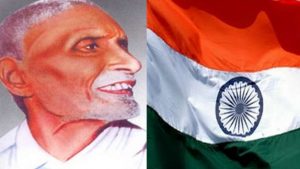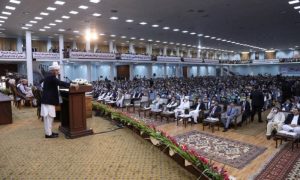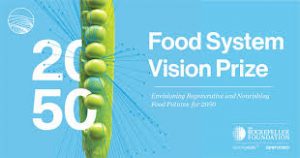Daily Current Affairs for Government Exams:
Today Current Affairs: 8th August 2020 for UPSC IAS exams, State PSC exams, SSC CGL, State SSC, RRB, Railways, Banking Exam & IBPS, etc
Table of Contents
Contents:
- Pingali Venkayya::
- The Centre’s plea seeking closure of cases against two Italian marines:
- Loya Jirga-grand assembly:
- Food System Vision Prize 2020:
- Other important current affairs:
1.Pingali Venkayya::

Vice President of India paid tribute to freedom fighter and the designer of India’s national flag, Pingali Venkayya on his birth anniversary.
- He was born on August 2, 1876, in Andhra Pradesh.
- He is also known as ‘Jhanda Venkaiah’.
Pingali Venkayya:
- Pingali Venkayya was a freedom fighter and the designer of the Indian National Tricolour. The national flag that we see today was based upon his design.
- Between 1918 and 1921, Venkayya raised the issue of having an own flag in every session of the Congress. Back then, he was working as a lecturer in the Andhra National College in Machilipatnam.
- He met the Mahatma once again in Vijayawada and showed him his publication with the various designs of the flag.
- Acknowledging the need for a national flag, Gandhi then asked Venkayya to design a fresh one at the national congress meeting in 1921.
- Initially, Venkayya came up with saffron and green colours, but it later evolved with a spinning wheel at the centre and a third colour-white. (LALA HANS RAJ SONDHI SUGGESTED ADDING A SPINNING WHEEL — SHOWING THE INDEPENDENT INDIANS WHO CAN SPIN THEIR OWN CLOTHING FROM LOCAL FIBRES.)
- The flag was officially adopted by the Indian National Congress in 1931.
2.The Centre’s plea seeking closure of cases against two Italian marines:

The Supreme Court has refused to pass any order on the Centre’s plea seeking closure of cases against two Italian marines, who are facing charges of killing two Indian fishermen in February 2012.
- The court said it would not pass any order without hearing the victims’ families who should be given adequate compensation.
- The Court insisted that it will close their criminal trial in India only after the victims’ families are heard and paid a “hefty” and “adequate” compensation.
Background:
- On July 3, the Centre moved the top court seeking closure of judicial proceedings in India against the two Italian marines, arguing that it has accepted the recent ruling of the Permanent Court of Arbitration (PCA) at The Hague, which held that India is entitled to get compensation in the case but can’t prosecute the marines due to official immunity enjoyed by them.
- In a close 3:2 vote, the tribunal ruled that the Italian marines enjoyed diplomatic immunity as Italian state officials under the United Nations Convention on the Law of Sea.
- Taking note of the “commitment expressed by Italy” to resume its criminal investigation into the incident, the tribunal said India must cease to exercise its jurisdiction.
- The award passed by the Permanent Court of Arbitration is in conflict with the Supreme Court judgment in 2013.
- This verdict upheld the authority of the Union of India to prosecute the Marines.
- So, an international award which is in conflict with domestic law, notwithstanding India’s ratification of the United Nations Convention on the Law of the Seas, can be implemented only if it is made into law under Article 253 of the Constitution”.
- The court asked the Centre to negotiate a “hefty” compensation with Italy.
- The court ordered the Centre to implead the victims’ families in the case within a week.
Overview of the marines’ case:
- In 2012, two Italian marines fired shots while on-board an Italian vessel, Enrica Lexie killing two Indian fishermen aboard an Indian vessel, St. Anthony.
- But, the fishing vessel was within the country’s Contiguous Zone and it was quite clear that the offence warranted arrest and prosecution under domestic law.
- Eventually, the marines were arrested.
- But, further, the marines were released from India and sent to Italy.
- At that time, India had set up a specially designated court, as ordered by Indian Supreme Court, to determine the applicability of jurisdiction.
- Meanwhile, the National Investigation Agency invoked the Suppression of Unlawful Acts against Safety of Maritime Navigation and Fixed Platforms on Continental Shelf Act, 2002.
- The dispute between the two countries as regards which country will try the two marines went before the PCA
3.Loya Jirga-grand assembly:

Recently, a three-day Loya Jirga-grand assembly has been called in Afghanistan to decide on freeing about 400 Taliban fighters convicted for serious crimes including murder and abductions.
Loya Jirga
- It is a mass national gathering that brings together representatives from the various ethnic, religious, and tribal communities in Afghanistan.
- It is a highly respected centuries-old consultative body that has been convened at times of national crisis or to settle national issues.
- According to the Afghan Constitution, a Loya Jirga is considered the highest expression of the Afghan people.
- It is not an official decision-making body and its decisions are not legally binding.
- However, the Loya Jirga’s decision is seen as final, with the president and parliament expected to respect the ruling.
- The Loya Jirga has been convened after the Afghanistan President refused to release the Taliban prisoners.
- This threatened the derailment of intra-Afghan talks, tentatively scheduled for 10th August 2020 in Doha.
- The Taliban has also threatened more bloodshed if the prisoners are not released.
- The USA believes that the talks between the Afghanistan government and the Taliban will lead to a reduction of violence and direct talks, resulting in a peace agreement and an end to the war in Afghanistan.
Background:
- The prisoner exchanges are part of the agreements signed by the USA and Taliban and the USA and Afghanistan government in February 2020.
- However, these were delayed for several months, and the intra-Afghan talks that were scheduled on 10th March had to be put off. Few argue that the current Afghanistan President Ashraf Ghani is deliberately delaying peace talks with the Taliban to retain power because it is speculated that negotiations could seek a neutral interim government that may cost Mr.Ghani his post.
- The USA announced to withdraw its forces and reduced its strength to about 8000, after pushing for the Afghanistan government to release the Taliban prisoners, and for the Taliban to release Afghan soldiers and civilians in its custody.
- Over the past few weeks, the USA government has been keen to speed up the Taliban-Afghan reconciliation process, with an eye on the November 2020 Presidential elections.
4.Food System Vision Prize 2020:

The Rockefeller Foundation has selected Naandi Foundation (a Hyderabad based non-profit organization), as one of the top 10 ‘Visionaries’ in the world for the Food System Vision 2050 Prize.
- Naandi was recognized for its Arakunomics
- It is an invitation for organizations across the globe to develop a Vision of the regenerative and nourishing food system that they aspire to create by the year 2050.
- The prize awards a cash incentive of USD $200,000.
- It was launched by the USA-based ‘The Rockefeller Foundation’, in partnership with the other two organizations SecondMuse and OpenIDEO- in 2019.
Food System Vision:
- It is really a story about the future that addresses the following six interconnected themes:
- Environment
- Diets
- Economics
- Culture
- Technology
- Policy
Arakunomics:
- It is a new integrated economic model that ensures profits for farmers, quality for consumers through regenerative agriculture.
- This model is a tribute to the tribal farmers of Araku region for the world-class coffee produced and launched in Paris in 2017 as well as for the high carbon landscape transformation they did in over 955 villages thereby planting 25 million trees.
- The success of Arakunomics in Araku region led to Naandi replicating the model to support the livelihood of farming communities in the villages of Wardha, Maharashtra, and later in New Delhi.
- Naandi hopes to expand its “food-print” by creating thousands of farm livelihoods by transforming their agriculture over one million acres spread across India.
Other important current affairs:
1. A recent study by TRAFFIC India on the seizure and mortality of ‘common leopards’ (Panthera pardus fusca) revealed that of the total of 747 leopard deaths between 2015-2019 in India, 596 were linked to illegal wildlife trade and activities related to poaching.
- TRAFFIC is a leading wildlife trade monitoring network across the world.
- The paper titled ‘‘SPOTTED’ in Illegal Wildlife Trade: A Peek into Ongoing Poaching and Illegal Trade of Leopards in India’ also said that the highest numbers of poaching incidents were reported from the States of Uttarakhand and Maharashtra.
- During the period 2015 to 2019, there were more than 140 cases of seizures of leopard body parts in Uttarakhand, and about 19 incidents where the deaths of these cats could be directly linked to poaching.
- Among all the derivatives found in illegal wildlife trade, skin remained the most in-demand product, accounting for 69% of all seizures, while derivatives like claws, teeth and bones were also traded.
2.K. V. KAMATH COMMITTEE:
- The Reserve Bank of India (RBI) constituted an expert committee under the chairmanship of veteran banker K.V. Kamath to make recommendations on norms for the resolution of COVID-19 related stressed loans.
- The committee will submit its recommendations on the financial parameters to the RBI, which in turn, will notify the same along with modifications, if any, in 30 days.
- The other members of the committee include Diwakar Gupta, T.N. Manoharan, Ashvin Parekh, and Sunil Mehta, CEO of Indian Banks’ Association, as the member-secretary.
- The Indian Banks’ Association (IBA) will function as the secretariat to the committee and the committee will be fully empowered to consult or invite any person it deems fit.
3. Union Urban Housing and Urban Affairs Ministry launched the Letter of Recommendation module for the PM SVANidhi Scheme.
- The module is designed to give access to street vendors who do not have Identity Card and Certificate of Vending and are not in the surveyed list for availing benefits under the scheme.
- The module provides for an end to end, digitally enabled process wherein an eligible vendor can request a Letter of Recommendation from the Urban Local Body, and on receipt of the same he can apply for a loan under PM SVANidhi.
- The vendors possessing Letter of Recommendation shall be issued Certificate of Vending or ID Card within a period of 30 days. This provision will help in extending the reach of the Scheme to the people who were hitherto unable to avail of these benefits.
4. Prime Minister Narendra Modi will inaugurate and dedicate to the Nation the submarine Optical Fibre Cable (OFC) of nearly 2300 KM length connecting Chennai and Port Blair on 10th August 2020.
- The submarine cable will also connect Port Blair to Swaraj Dweep (Havelock), Little Andaman, Car Nicobar, Kamorta, Great Nicobar, Long Island, and Rangat.
- This connectivity will enable delivery of faster and more reliable mobile and landline telecom services to Andaman & Nicobar Islands, at par with other parts of India.
- The foundation stone for this project was laid by the Prime Minister in 2018 at Port Blair.
- The submarine OFC link will deliver bandwidth of 2 x 200 Gigabits per second (Gbps) between Chennai and Port Blair, and 2 x 100 Gbps between Port Blair and the other islands.
- The project is funded by the Government of India through the Universal Service Obligation Fund (USOF) under the Department of Telecommunications, Ministry of Communications.
- Bharat Sanchar Nigam Limited (BSNL) executed this project while Telecommunications Consultants India Limited (TCIL) is the Technical Consultants.
5.Rashtriya Swachhata Kendra was inaugurated recently.
- A tribute to Mahatma Gandhi, the Rashtriya Swachhata Kendra (RSK) was first announced by the Prime Minister on 10th April 2017, on the occasion of the centenary celebrations of Gandhiji’s Champaran Satyagraha.
- It is an interactive experience centre on the Swachh Bharat Mission.
- The installations at RSK will include audiovisual immersive shows, interactive LED panels, hologram boxes, interactive games etc.
- It will introduce future generations to its successful journey as the world’s largest behaviour change campaign.
- It will showcase the core elements of the mission and anecdotes on the journey of the country from Satyagraha to Swachchagrah.
- It will impart information, awareness and education on Swachhata (sanitation) and related aspects.
6.Delhi government has launched the Electric Vehicle Policy for the national capital.
- With this policy, the government aims to generate employment to give a boost to Delhi’s economy and reduce pollution levels in the national capital.
- Highlights of the policy:
- The policy aims to constitute 25% electric vehicles by 2024, which is currently just 0.29% in the national capital.
- The government will waive the registration fee and road tax.
- It will give an incentive of up to ₹30,000 for two-wheelers, autos, e-rickshaws, and freight vehicles while for cars, it will provide an incentive of up to ₹1.5 lakh.
- The government will also give a low-interest loan on electric commercial vehicles.
- An ‘EV Cell’ will be established to implement the Policy.
- The government will also set up a ‘State Electric Vehicle Board’.
- 200 charging stations will be set up in a year to ensure that people driving these vehicles can get a charging station within a radius of three kilometers.
- The Delhi government will give a ”scrapping incentive” under the electric vehicle policy, which will be first-of-its-kind in the country.
- Youth will be trained so that they get jobs as electric vehicle sector will need them at a large scale after implementation of this policy.




